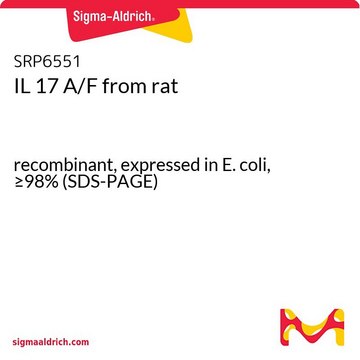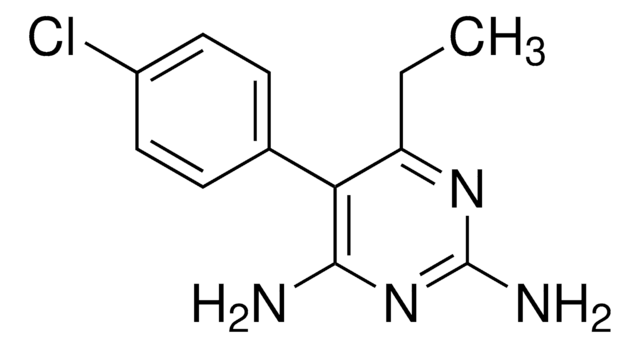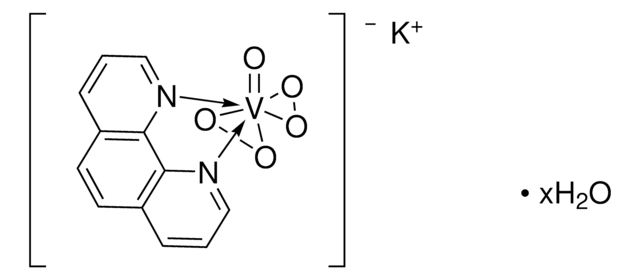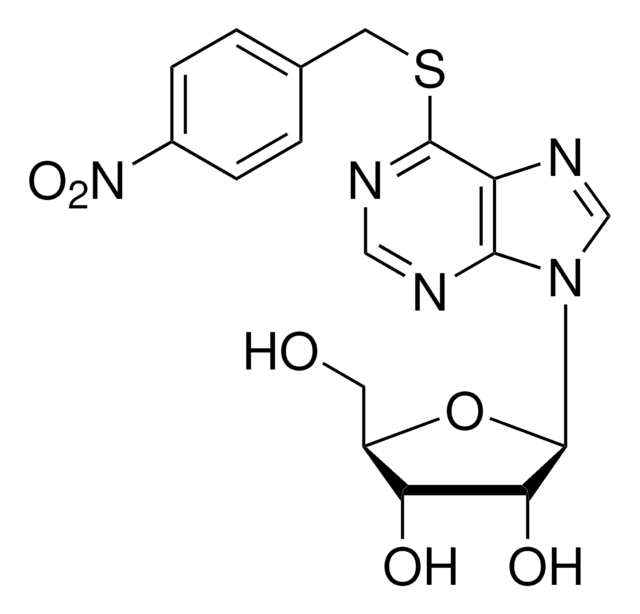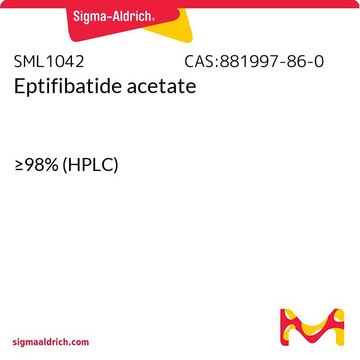SRP3236
TPO from mouse
recombinant, expressed in E. coli, ≥98% (SDS-PAGE), ≥98% (HPLC), suitable for cell culture
Sinónimos:
MGDF, Megakaryocyte colony-stimulating factor, Thrombopoietin, c-MPL Ligand
About This Item
Productos recomendados
biological source
mouse
recombinant
expressed in E. coli
assay
≥98% (HPLC)
≥98% (SDS-PAGE)
form
lyophilized
potency
<1.0 ng/mL ED50
mol wt
18.7 kDa
packaging
pkg of 10 μg
technique(s)
cell culture | mammalian: suitable
impurities
<0.1 EU/μg endotoxin, tested
color
white
UniProt accession no.
shipped in
wet ice
storage temp.
−20°C
Gene Information
mouse ... THPO(21832)
General description
Biochem/physiol Actions
Sequence
Physical form
Reconstitution
Storage Class
11 - Combustible Solids
wgk_germany
WGK 3
flash_point_f
Not applicable
flash_point_c
Not applicable
Elija entre una de las versiones más recientes:
Certificados de análisis (COA)
¿No ve la versión correcta?
Si necesita una versión concreta, puede buscar un certificado específico por el número de lote.
¿Ya tiene este producto?
Encuentre la documentación para los productos que ha comprado recientemente en la Biblioteca de documentos.
Nuestro equipo de científicos tiene experiencia en todas las áreas de investigación: Ciencias de la vida, Ciencia de los materiales, Síntesis química, Cromatografía, Analítica y muchas otras.
Póngase en contacto con el Servicio técnico
